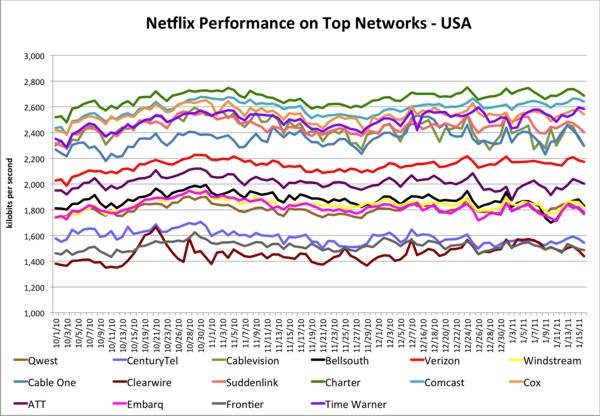Netflix Taunts ISPs with Speed Ratings

"We find ourselves in the unique position of having insight" into ISP performance thanks to the many streams Netflix delivers over the internet, says Ken Florance, the company's director of content delivery. "The throughput we are able to achieve with these streams can tell us a great deal about the actual capacity our subscribers are able to sustain to their homes."
The figures are filtered to concentrate on titles with HD streams. Netflix's speediest HD stream is 4800 kilobits per second. Of course not everyone can get that, "but the higher the sustained average, the greater throughput the client can achieve."
We're guessing this Netflix blog will have hairpieces hitting the ceiling at your local cable company HQ. As previously reported, Netflix streaming accounted for 20 percent of U.S. peak downstream internet traffic in 2009, and it's only grown by leaps and bounds since then, so the number is surely higher now. This is a couple of bitter pills to swallow for ISPs: Not only are their networks groaning under the load, but Netflix streaming is also kicking the butts of their video on demand operations.
ISPs have responded by threatening to charge Netflix fees for taking such a big bite out of their networks. Net neutrality advocates have resisted this idea, claiming it would create two internets for privileged and less privileged traffic. The Federal Communications Commission has responded with its first attempt at net neutrality regulation and surely also had Netflix in mind when it imposed conditions on the just-concluded merger of Comcast with NBC-Universal. Verizon and T Mobile sued the FCC over the new regs before they'd been implemented. Streaming is thus shaping as a significant regulatory and legal battleground in 2011.
See Netflix blog.
- Log in or register to post comments





























































